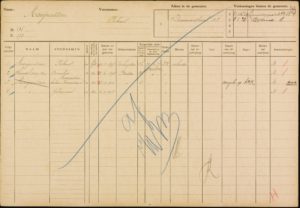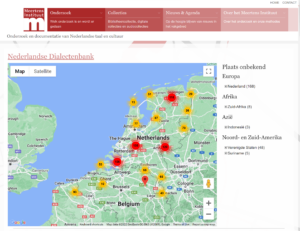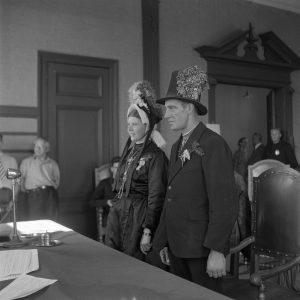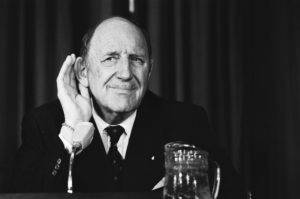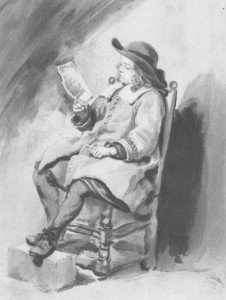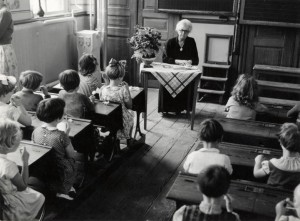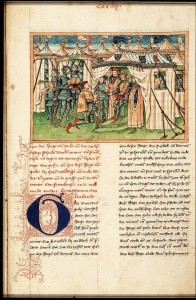The website Uit de oude koektrommel has a useful page with abbreviations you may come across when using population registers. The page has four categories: Algemeen [general] Kerkelijk gezindte [Religious affiliation] Plaatsen en provincies [Place names and provinces] Landen [Countries]. The page is in Dutch, but once you know the full term you can often use a translator like Google Translate to translate the terms to a different language. … [Read more...]
Quick tip – Hear the dialects of your ancestors
In the Netherlands, every region, sometimes every town, has its own particular dialect. If you want to hear how the people in your ancestors' region sounded, you can listen to audio clips at the Meertens Institute website. Click on the + before the province Click on the name of the town, which will open a pop-up with a list of recordings. Click on "Afspelen" [play] Most of the clips are anonymous. You can also click Kaart [map] to see the recordings on a map or click the Opnames … [Read more...]
“You’re Welcome!”
When I was eleven years old, my mom and I went to the United States to visit her aunt and uncle in Washington, DC. It was my first time on an airplane, and my first time using English for real. I had been learning English for over a year, but had not had the opportunity for an actual conversation. We met our cousins, and some brought gifts for me. When I thanked them, they said "You're welcome." I felt all warm and fuzzy. How nice that these Americans were welcoming me to their country! And … [Read more...]
Dutch term – Nedersaksisch
Nedersaksisch is the Dutch word for Low Saxon, a language spoken in the north-east of the Netherlands and across the eastern border in Germany. It has different dialects, including Gronings (in Groningen), Drents (in Drenthe), Twents (east of Overijssel), and Achterhoeks (east of Gelderland). In 1998 it was recognized as an official regional language of the Netherlands, alongside Frisian and Limburgs. Most people who speak Nedersaksisch also speak standard Dutch, though sometimes with an … [Read more...]
Quick Tip – Dutch Immigrants may not have Understood Each Other
Dutch immigrants sometimes settled in places where Dutch people from other parts of the Netherlands came too. This doesn't mean they could understand each other. Before the age of radio and television, there was no common Dutch language that everybody understood. Different regions had different dialects, different languages even. Frisian and Low Saxon are completely different from Flemish, to name three examples. To this day, people speaking in their local language or dialect won't be … [Read more...]
Quick tip – The Dutch Language Changed a Lot
The Dutch language changed a lot these past centuries. It's not just the script - the words themselves changed a lot too. Most Dutch people today struggle to understand a text from the 1600s, even if it's reprinted. This explains why automatic translators like Google Translate or Chrome struggle to understand archaic Dutch. They often don't produce anything that is comprehensible in English, and may change the meaning. The correct interpretation of all terms in a document is often vital to … [Read more...]
Quick tip – Free Dutch language course
Have you always wanted to learn Dutch? The University of Groningen is teaching a free online course that will teach you the basics of the language in three weeks. The next course starts 1 June 2015. Read more information about the Dutch language course on the Future Learn website. … [Read more...]
Quick tip – Languages that may come in handy
These languages will come in handy when researching your ancestors from the Netherlands. Dutch Not surprisingly, most records in the Netherlands have been written in Dutch. French During the French occupation (1795-1813), most government records were written in French, including early civil registration records. German During World War II (1940-1945), the Netherlands was occupied by Germany so some official records created at that time were in German. Also, in some parts of current-day … [Read more...]
